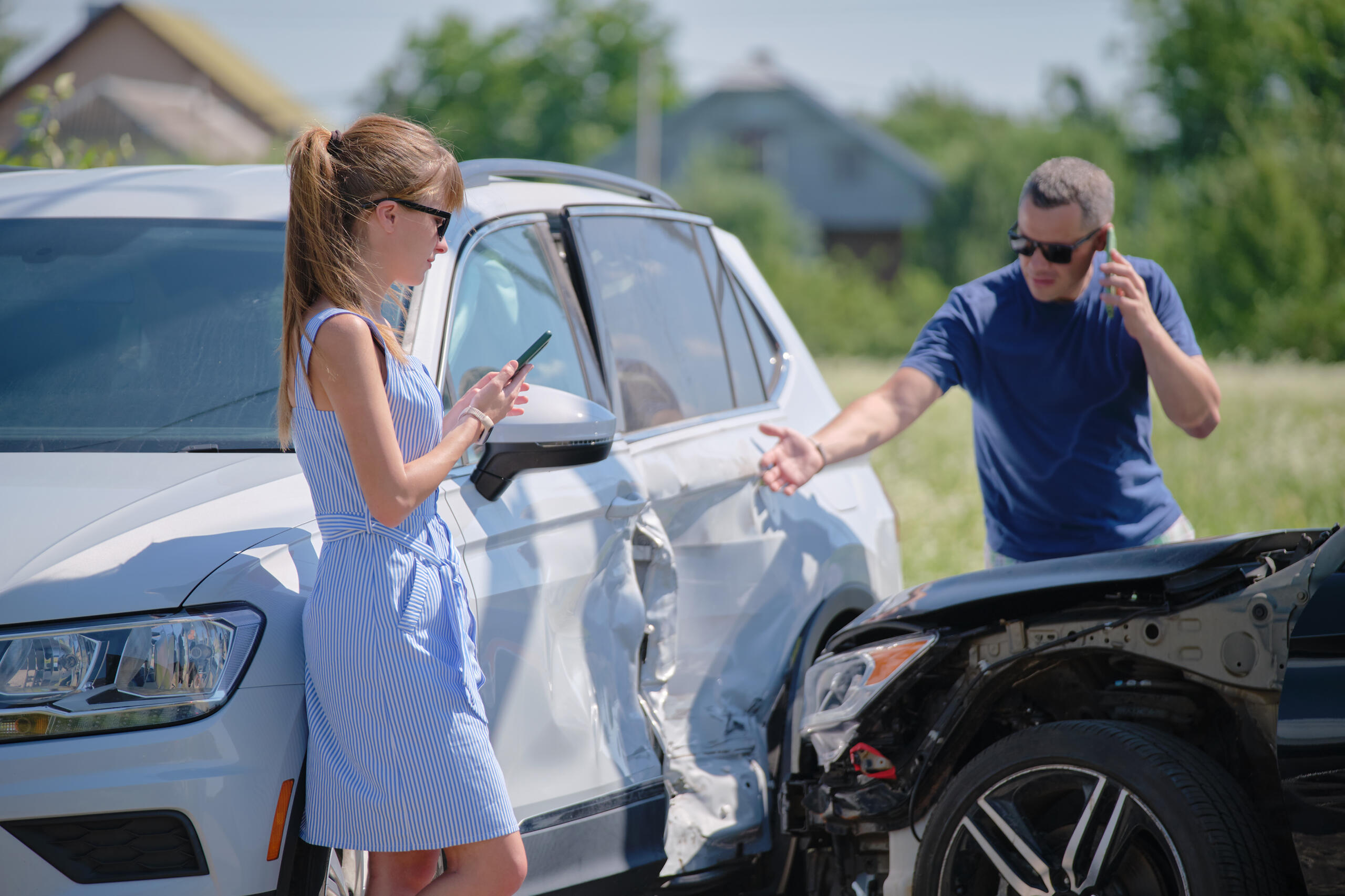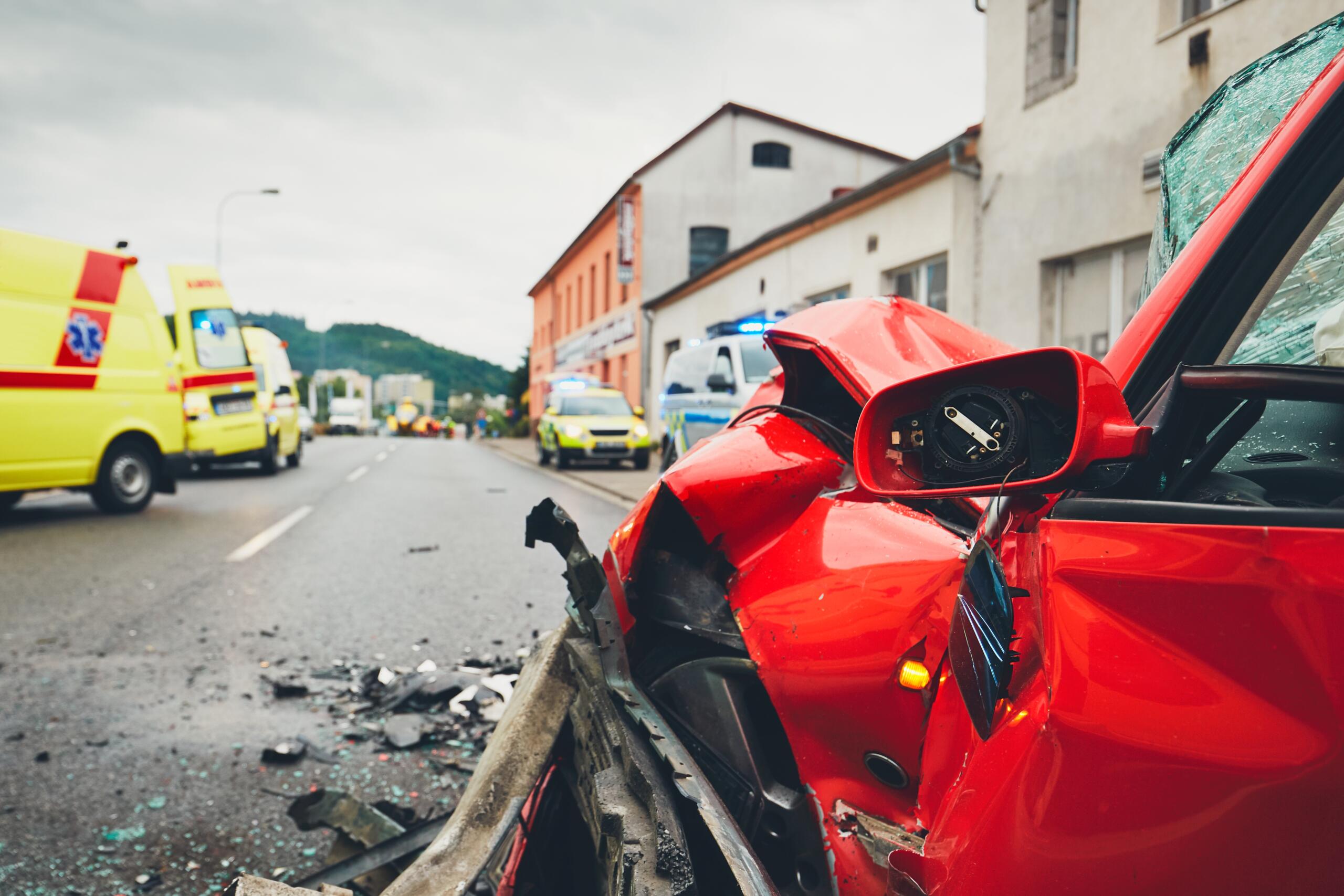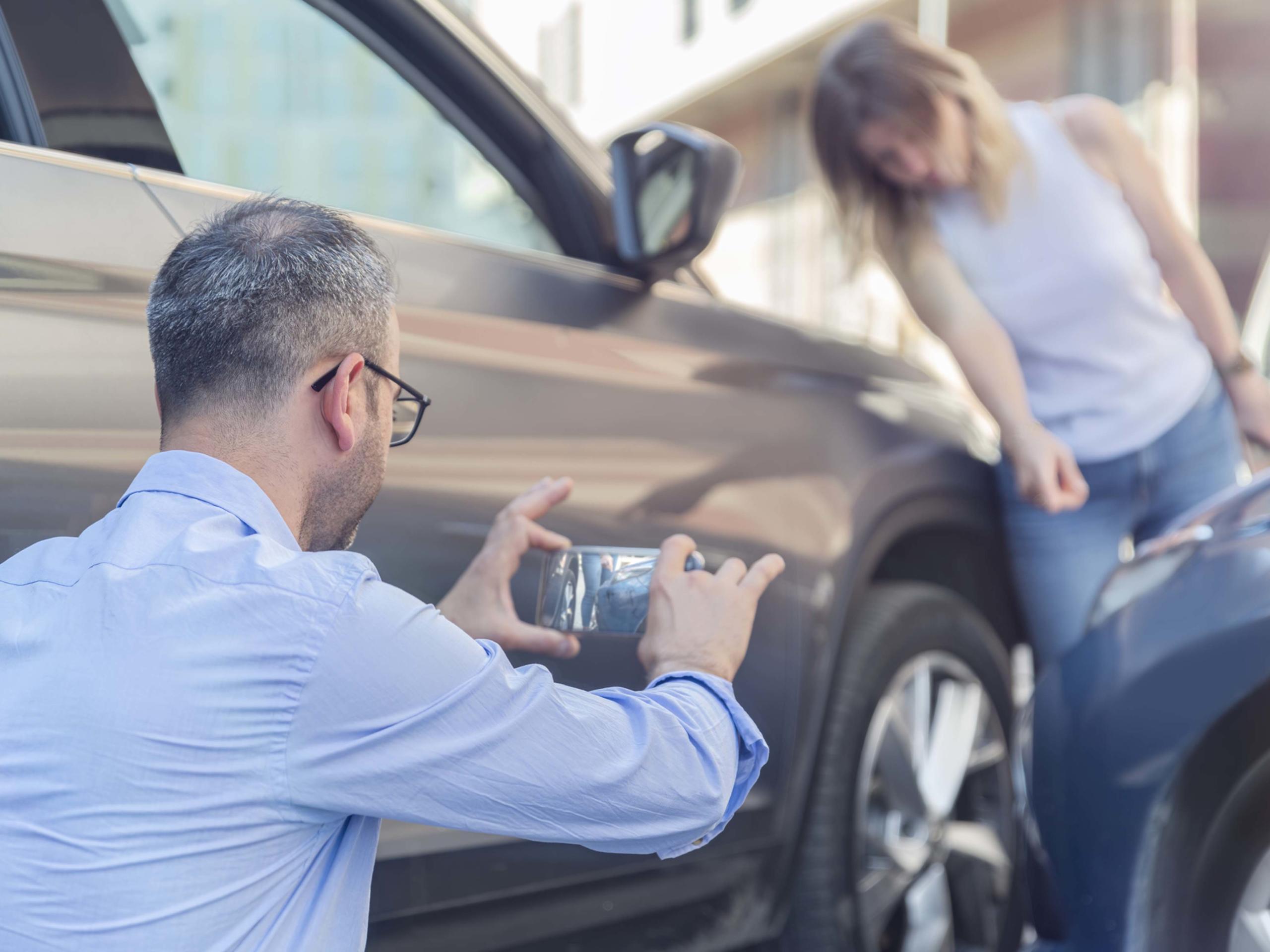Check Yourself and Passengers
The first thing to do after a car accident is to check yourself for injuries. Take a moment to assess your physical state, and if you’re able, check on your passengers as well. Remember that adrenaline can mask pain, so it’s important to be thorough in your self-assessment. Prioritize safety and health above all else. If anyone is injured, call 911 immediately and wait for medical professionals to arrive. It’s better to be safe and have a professional evaluation rather than risk ignoring a potentially serious injury.
Move to a Safe Location
If the accident is minor and your car is drivable, move your vehicle to a safe location, such as the shoulder of the road or a nearby parking lot. This helps prevent further accidents and makes it easier for emergency responders to reach the scene. Turn on your hazard lights to alert other drivers and signal that you are in distress. If your vehicle cannot be moved, remain inside with your seatbelt fastened until help arrives to avoid oncoming traffic. It’s important to prioritize your safety and the safety of others by minimizing the risk of further collisions.
Contact Authorities
Call the Police
Regardless of the accident’s severity, it’s important to call the police. They will document the scene and create an official accident report, which can be vital for insurance claims and legal matters. When the police arrive, provide them with accurate information but avoid admitting fault or blaming others. Keep your account factual and concise, focusing on the details of the event. An official report will serve as an unbiased account of the accident and will be a critical piece of evidence if disputes arise later.
Gather Police Report Information
Ask the responding officer for their name, badge number, and the police report number. This information will be useful when you follow up with your insurance company. It’s also wise to take note of the time and location of the accident as well as any other pertinent details mentioned by the officer. Having this information readily available can streamline communication with your insurance provider and ensure that your claim is processed smoothly. Maintaining a record of the police report details also helps in case you need to reference the incident in future legal proceedings.
Document the Accident
Take Photos and Videos
Capture the accident scene from multiple angles with your smartphone. Focus on vehicle damage, road conditions, traffic signs, and any visible injuries. Be thorough in your documentation, as photographic evidence can help support your version of events during insurance claims or legal proceedings. It’s advisable to include close-up shots of any damage, as well as wide-angle photos that show the entire scene. Remember to also photograph any skid marks, debris, or other relevant factors that might have contributed to the accident.
Exchange Information with Other Drivers
Politely exchange information with the other driver(s) involved. Be sure to collect:
- Full name and contact details
- Insurance company and policy number
- Driver’s license and license plate number
- Make, model, and color of their vehicle
It’s also helpful to note the location of the accident, the time, and weather conditions. Approach this exchange calmly and courteously, even if tensions are high. This information will be crucial for filing insurance claims and ensuring that all parties involved are held accountable. Having accurate and comprehensive details will facilitate a smoother claims process and help avoid potential disputes.
Talk to Witnesses
If there are witnesses, ask for their contact information and a brief account of what they saw. Witness statements can be valuable when determining fault or clarifying the sequence of events. Approach them respectfully and thank them for their willingness to help. Witnesses can provide an objective perspective that may corroborate your account or offer new insights into the accident. Having their testimonies can significantly strengthen your case, especially if there are conflicting reports from the involved parties.
Notify Your Insurance Company
Report the Accident
Contact your insurance company as soon as possible to report the accident. Provide them with all the details you’ve gathered, including the police report number and witness information. Be honest and clear about the events leading up to the accident. Prompt notification is often a requirement in insurance policies, and delaying this step could complicate the claims process. By being transparent and forthcoming with information, you increase the likelihood of a favorable resolution.
Understand Your Coverage
While speaking with your insurance representative, ask questions to understand your coverage. Find out about your policy’s specifics, such as deductible amounts and rental car coverage, so you know what to expect during the claims process. Understanding your policy can help you make informed decisions about repairs and any out-of-pocket expenses you might incur. Clarifying these details upfront can prevent surprises later and give you peace of mind as you navigate the aftermath of the accident.
Seek Medical Attention
Visit a Doctor
Even if you feel fine, it’s wise to see a doctor after an accident. Some injuries, like whiplash or concussions, may not be immediately apparent. A medical professional can assess your condition and document any injuries, which can be important for insurance claims or potential legal action. Prompt medical evaluation ensures that any latent injuries are addressed before they worsen. Additionally, having a medical record from a professional provides concrete evidence of injuries sustained in the accident.
Follow Medical Advice
Adhere to any treatment plan or follow-up appointments recommended by your doctor. Keeping track of your medical visits and progress can support your case if you need to make a personal injury claim later. It’s important to follow through with medical advice not only for your health but also to demonstrate that you are taking necessary steps toward recovery. Documenting your adherence to medical guidance can be pivotal in securing compensation for medical expenses and related damages.
Keep Detailed Records
Maintain an Accident File
Create a file to store all documents related to the accident. This includes:
- Police reports
- Medical records and bills
- Vehicle repair estimates and invoices
- Correspondence with insurance companies
Having organized records ensures that you can quickly access important information when needed. An accident file serves as a comprehensive resource that can simplify interactions with insurance adjusters or legal professionals. Keeping all documentation in one place reduces stress and enhances your ability to manage the situation effectively.
Understand Your Legal Rights
Consult an Attorney
If you’re facing significant damages or disputes about fault, consider consulting with a personal injury attorney. They can provide guidance on your rights and help you navigate any legal challenges that may arise. Legal counsel can offer valuable insights into the merits of your case and potential outcomes. An attorney can also assist in negotiating settlements or representing you in court if necessary, ensuring that your interests are protected.
Know the Statute of Limitations
Be aware of the statute of limitations for filing claims related to the accident in your state. This varies by location and type of claim, so understanding this timeline is crucial to protecting your rights. Missing this deadline could forfeit your ability to seek compensation or legal recourse. Staying informed about these time constraints empowers you to take timely action and secure your rights under the law.
Conclusion
Being involved in a car accident is a challenging experience, but knowing the immediate steps to take can make a significant difference in the outcome. By ensuring safety, documenting the incident, and following up appropriately, you can protect your well-being and rights. Keep this guide handy as a quick reference for what to do after a car accident, and drive safely. Remember, preparation and knowledge are your best allies in managing the aftermath of an accident effectively. With these steps in mind, you can face the situation with confidence and composure, prioritizing your safety and that of those around you.
Need Legal Assistance? Contact 612-Injured, Minnesota’s Personal Injury Attorneys!
If you find yourself in a challenging situation after a car accident, don’t hesitate to reach out for professional help. Contact 612-Injured, Minnesota’s trusted personal injury attorneys, who are ready to assist you in navigating the complexities of your case. With their expertise, you can ensure that your rights are protected and that you receive the compensation you deserve. Call today for a free consultation and take the first step towards recovery!



